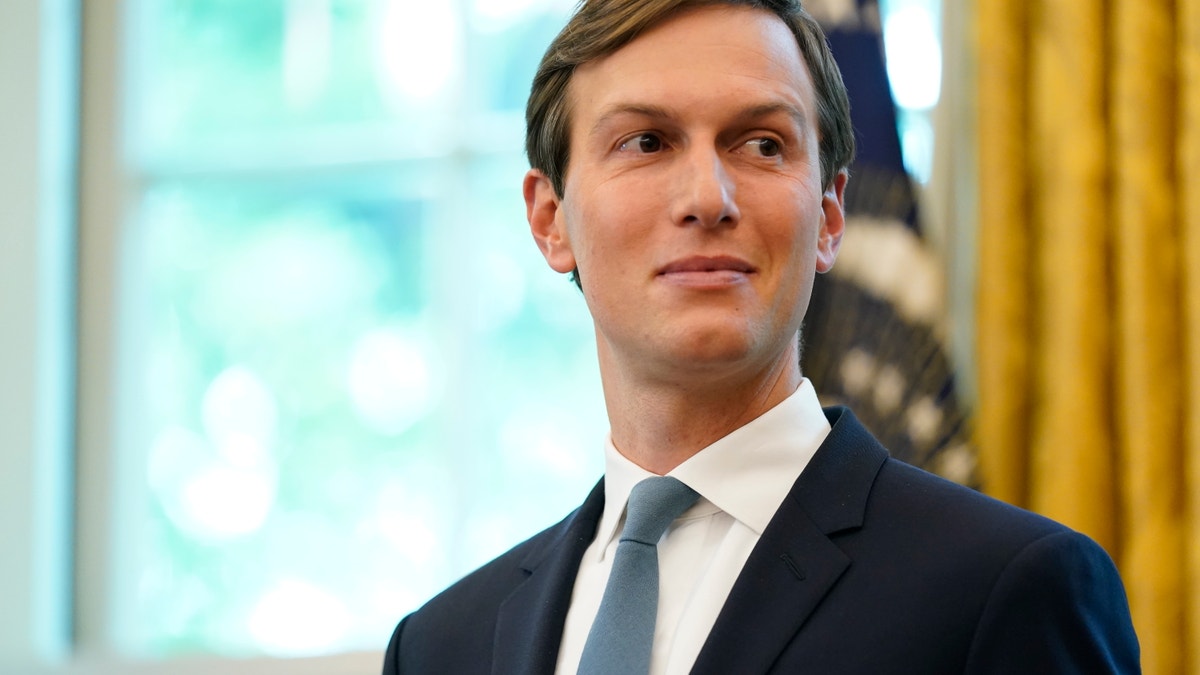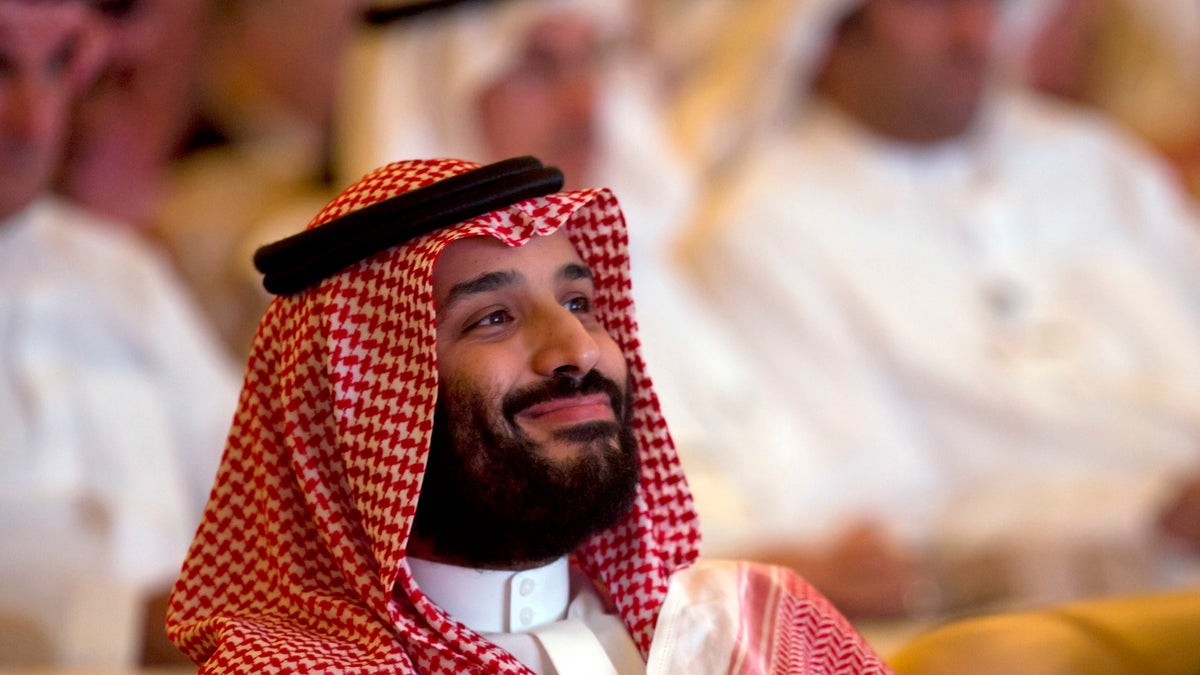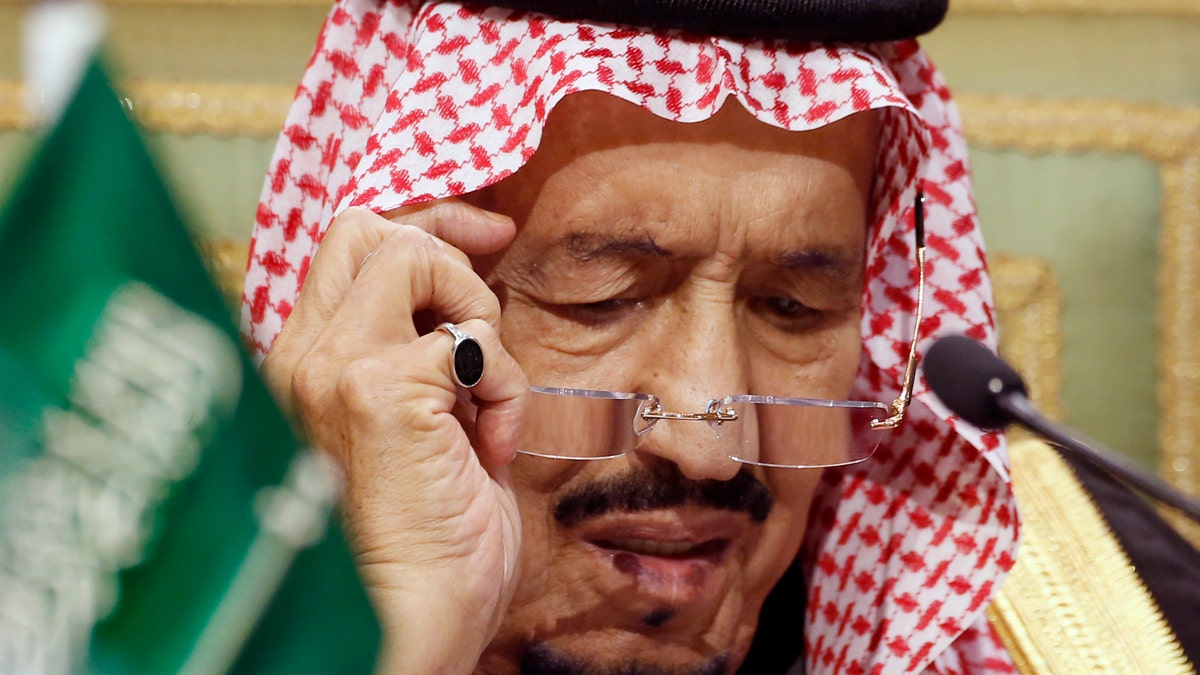President Trump presides as Israel and Arab nations sign Abraham Accords
Israel establishes formal diplomatic relations with Bahrain and UAE; chief White House correspondent John Roberts reports.
White House senior adviser Jared Kushner touched down in the Gulf this week in what observers say is a last-ditch effort to secure final prominent foreign policy wins for the Trump team with Saudi's Crown Prince Mohammed bin Salman, known colloquially as MBS.
In particular, Kushner's endeavor is to continue threading a fabric of Muslim-majority countries "normalizing" diplomatic ties with Israel – with the Kingdom of Saudi Arabia next on the agenda to follow in the footsteps of the United Arab Emirates (UAE), Bahrain and Sudan. Those countries all inked Israel deals in recent months under Kushner's brokerage in what has become known as the Abraham Accords.
"This would mark an important victory before Trump leaves office, and something Jared (Kushner) has been working very hard on," a Washington source familiar with the discussions, who spoke on the condition of anonymity, told Fox News. "It is a serious effort that has long been on the cards."

Jared Kushner listens during an announcement in the Oval Office of the White House on Friday, Sept. 11, 2020, in Washington. Bahrain has become the latest Arab nation to agree to normalize ties with Israel as part of a broader diplomatic push by President Donald Trump and his administration to fully integrate the Jewish state into the Middle East. (AP Photo/Andrew Harnik)
This week's meeting comes fewer than two weeks after landmark trilateral discussions reportedly took place between MBS and Israeli Prime Minister Benjamin Netanyahu along with U.S. Secretary of State Mike Pompeo in the planned futuristic Saudi city of NEOM. Saudi officials have subsequently denied the meeting ever happened.
WHERE DOES IRAN'S NUCLEAR WEAPONS PROGRAM STAND NOW?
Yet multiple challenges still stand in the way.
According to the source, 84-year-old King Salman has been the primary bulwark against the agreement given the unresolved Palestinian issue; in contrast, next-in-line, 35-year-old MBS was keener to take the leap.
While the status of Palestinians has seemingly slipped from the Saudi priority docket in recent years as Tehran strains have become a more pressing issue, the oil-swathed Gulf nation has publicly sustained its decade-old policy of not recognizing Israel until an autonomous Palestinian state is established.
"I doubt that Saudi Arabia will sign a peace agreement with Israel as long as King Salman is alive," said Jim Phillips, a senior research fellow for Middle Eastern affairs at The Heritage Foundation. "Although Crown Prince Mohammad represents new thinking for the Saudis, the King is committed to the outcome of a Palestinian state, which is not in the cards for the foreseeable future."
Multiple experts and foreign policy analysts concurred to Fox News that such a deal would be highly unlikely to be secured in the remainder of Trump's term.
Harley Lippman, CEO and founder of tech firm Genesis10 and one of the early orchestrators of the Abraham Accord, underscored that “Saudi Arabia is mindful of the fact they are considered a pariah among nations around the globe, especially with the Democratic Party in the United States.”
“If Saudi Arabia does make a deal right now during the Trump administration, it will just make the Democrats angrier,” he said. “(But) the pros of doing this now is yet another strengthening of the alliance. It strengthens the opposition to the bad actors in the region and against the Muslim Brotherhood. Anything we can do to strengthen the relationship would be a deterrent.”
However, Riyadh was murmured to be on course to join the ranks of Kushner's Middle East peace plan. But the Wall Street Journal indicated this week that the Crown Prince has since stalled in the wake of last month's presidential election, which projected Joe Biden as the winner.

Saudi Crown Prince Mohammed bin Salman smiles as he attends the Future Investment Initiative summit in Riyadh, Saudi Arabia, in 2018. Prince Mohammed has denied any knowledge of the operation that resulted in Khashoggi's death. (AP)
According to Howard Stoffer, associate professor of national security at the University of New Haven, the chances of a deal negotiated between Saudi Arabia and Israel can be weighed between two perspectives.
"Saudi Arabia wants a deal done prior to Trump leaving office because Biden's team may be more critical of the Kingdom due to MBS' role in the murder of Jamal Khashoggi in Turkey and its continuing poor human rights record, or b) the Saudis want to wait until Biden assumes office to enhance their ties to the new administration and give them a win at the onset of the new president's term," he said.
Yet Kushner's ongoing bid for The Kingdom to strengthen its ties to Israel comes at a time when tensions with Iran – the archnemesis for both the Saudi and Israeli leadership – are accelerating, particularly days after Israeli operatives are alleged to have assassinated Iran's key nuclear scientist.
The terms of the Trump team's plan would have allowed Israel to expand permanent borders and given the Jewish state broader security controls stretching out from the Jordan River and into the Mediterranean Sea.
Throughout his four years as not only the president's son-in-law but one of his closest and most trusted confidantes, Kushner is said to have formed tight bonds with MBS and made several trips to the region. However, critics doubt that even the close-knit friendship will be enough to ink an accord before Jan. 20.
But if Kushner comes home empty-handed this week, it could also halt any short-term arms deals as regional anxieties flare. It remains unclear what approach a Biden administration will take to selling arms to countries in the Middle East, but experts anticipate such a transaction will go smoother under Trump than his Democratic successor.
OMAR SUGGESTS BIDEN SHOULD 'REVERSE' TRUMP'S MIDDLE EAST AGREEMENTS, SAYS THEY 'WEREN'T PEACE DEALS'
On the campaign trail, Biden advocated for normalization barters between Arab states and Israel, but he has also vowed to take a firmer stance on Saudi's human rights file and expressed a desire to return to the 2015 Iran nuclear agreement, which was vehemently despised by Israel and the Gulf states.
"Any future deal would involve major economic benefits for Saudi Arabia, as well as arms deals for coveted U.S. military hardware. It won't be so easy, as illustrated by the ongoing efforts by Congress to block the F-35 deal to the UAE due to their poor human rights record and involvement in the conflicts in Yemen and Libya," surmised Raphael Marcus, a visiting research fellow in the department of war studies at King's College London.

In this Dec. 10, 2019, file photo, Saudi King Salman chairs the 40th Gulf Cooperation Council Summit in Riyadh, Saudi Arabia. Saudi Arabia’s King Salman has been admitted to a hospital in the capital, Riyadh, for medical tests due to inflammation of the gallbladder, the kingdom’s Royal Court said Monday, July 20, 2020, in a statement carried by the official Saudi Press Agency. (AP Photo/Amr Nabil, File)
Nonetheless, Stoffer contended that the issue of arms isn't likely a significant factor in ironing out terms of the accord since Trump already sold nearly $10 billion in arms to Saudi Arabia near the beginning of his term.
"The Saudis may want to buy the F-35s that we are selling to the UAE, but that would not be enough alone to induce them to normalize relations with Israel," he said.
Also on the Gulf discussion lineup this week is an apparent White House push to mend the three-year fissure between the Arab states and Qatar. The schism came to a forefront in 2017 when Saudi, along with the UAE, Bahrain and Egypt, cut diplomatic relations and imposed a sea, land and air blockade on their neighbor, accusing the wealthy Persian Gulf state of backing terrorist outfits loyal to Iran, including Hamas and Hezbollah.
CLICK HERE TO GET THE FOX NEWS APP
Both U.S. and Kuwaiti officials have previously mediated talks to rectify the rift between Doha and Riyadh but without success.
The Saudi Embassy in D.C. did not respond to a request for comment.


